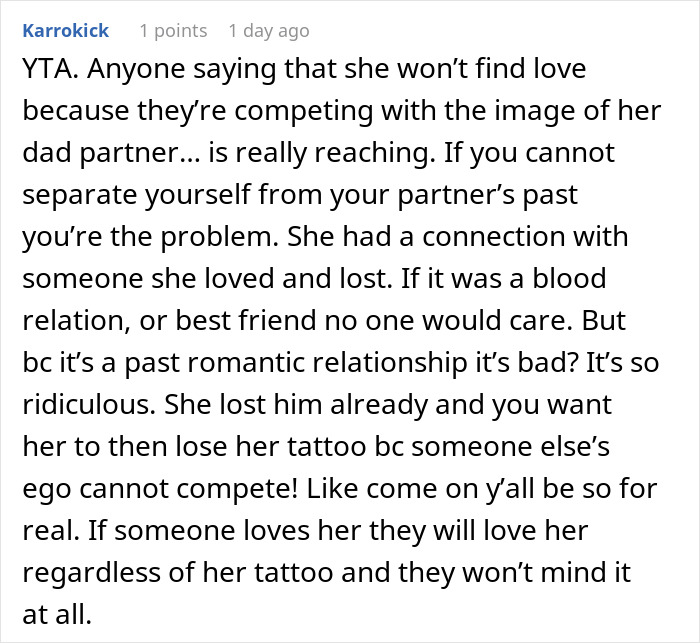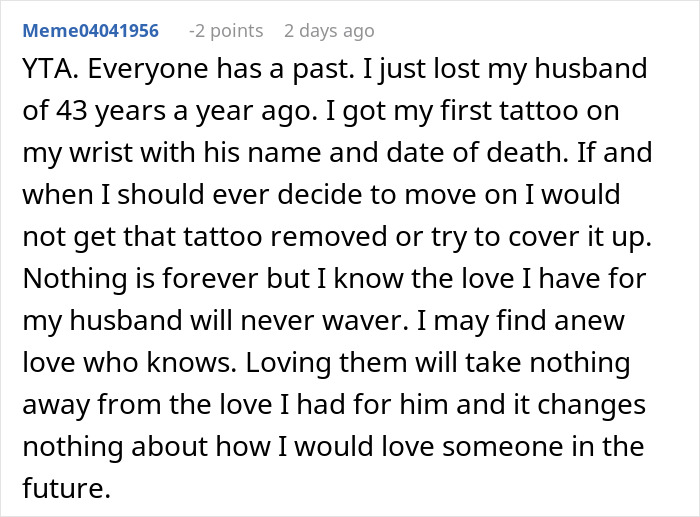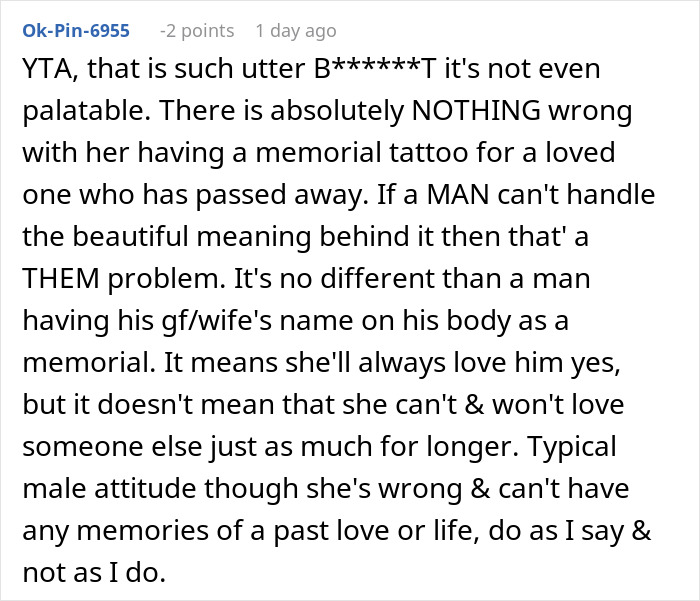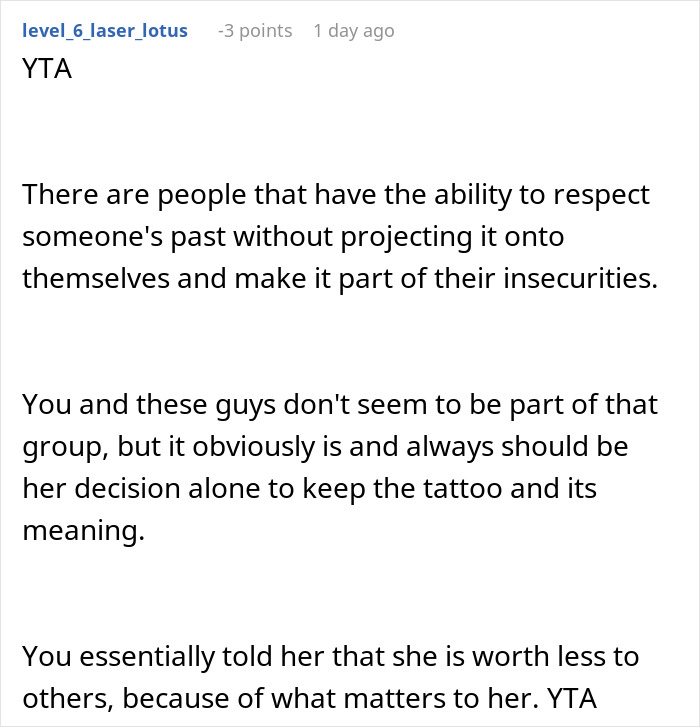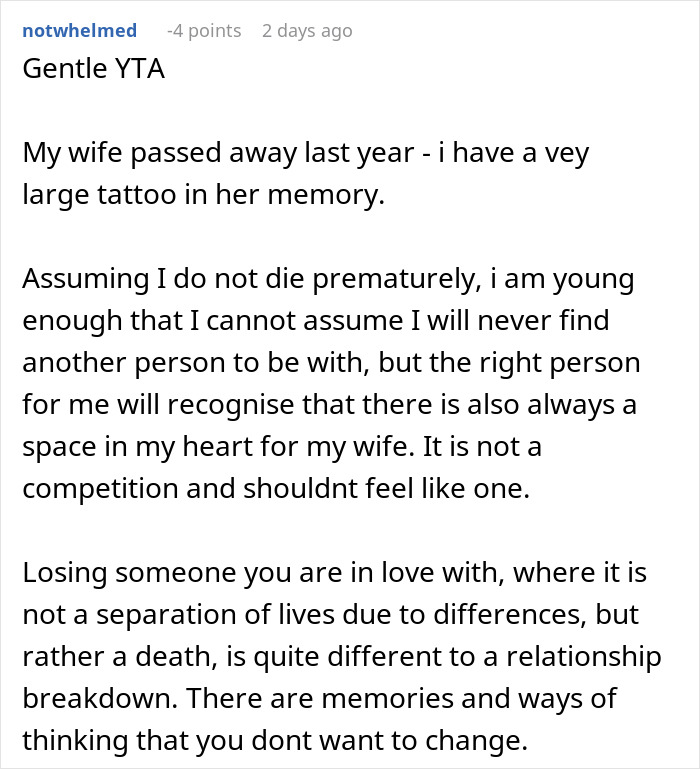You know you’re about to step into dangerous territory when someone asks for your “honest opinion” and says they definitely “won’t get mad” because of what you tell them. That’s exactly what happened to Reddit user NorthernCanadaEh, who recently shared his uncomfortable experience on r/AITAH.
After being cornered by his friend, the man was asked to weigh in on a very sensitive topic: a chest tattoo that immortalizes her former fiancé. What followed was a vivid Titanic analogy and a raw conversation that ended in tears.
Name tattoos can be either a beautiful tribute or painful reminder, depending on how the story ended
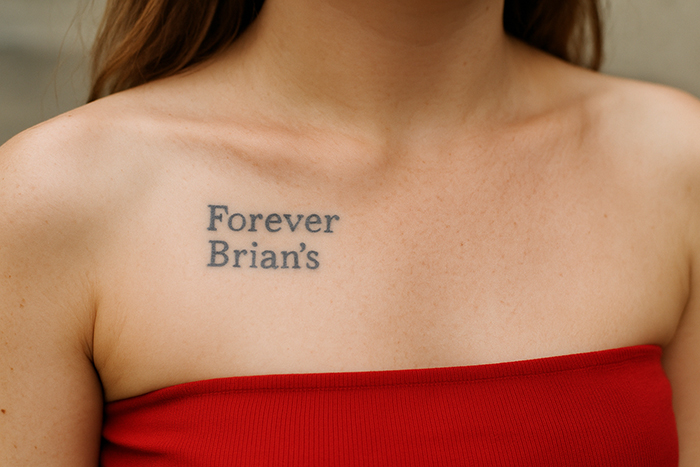
Image generated by Bored Panda using chatGPT
And this woman isn’t sure if hers is being received well by the men she’s dating
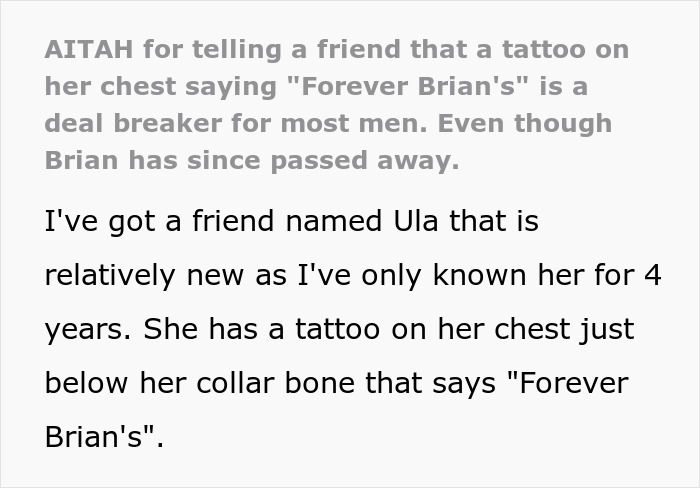
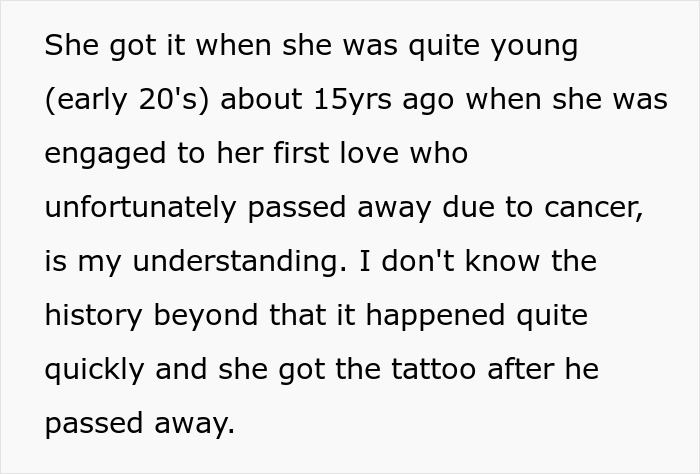
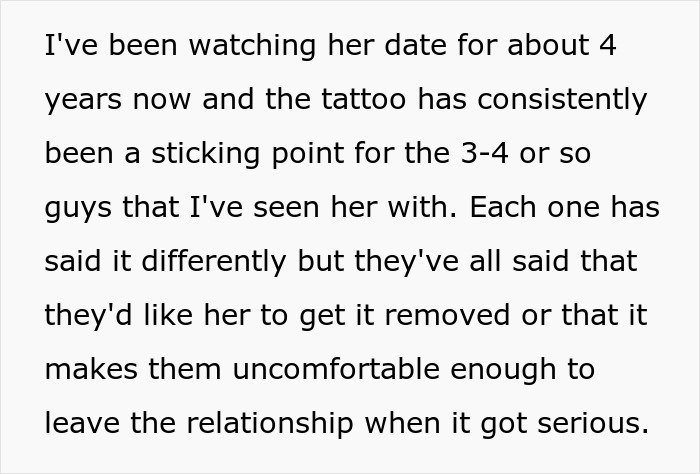
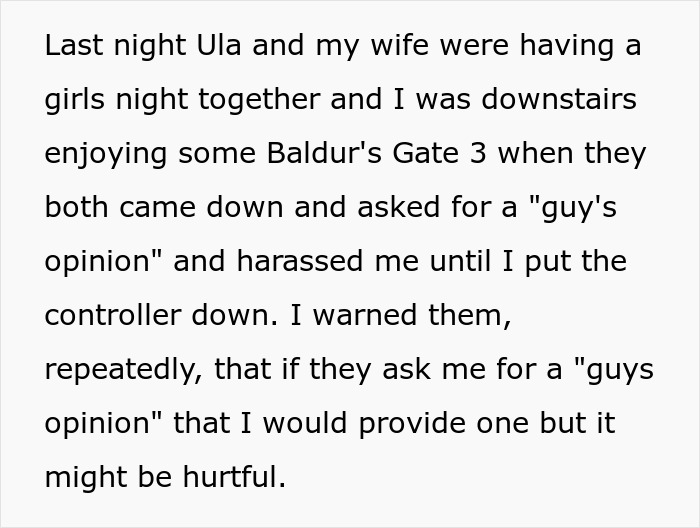



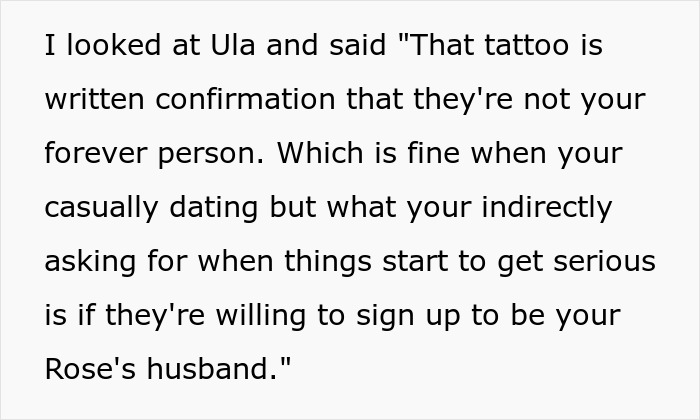

Image credits: guyswhoshoot / envato (not the actual photo)

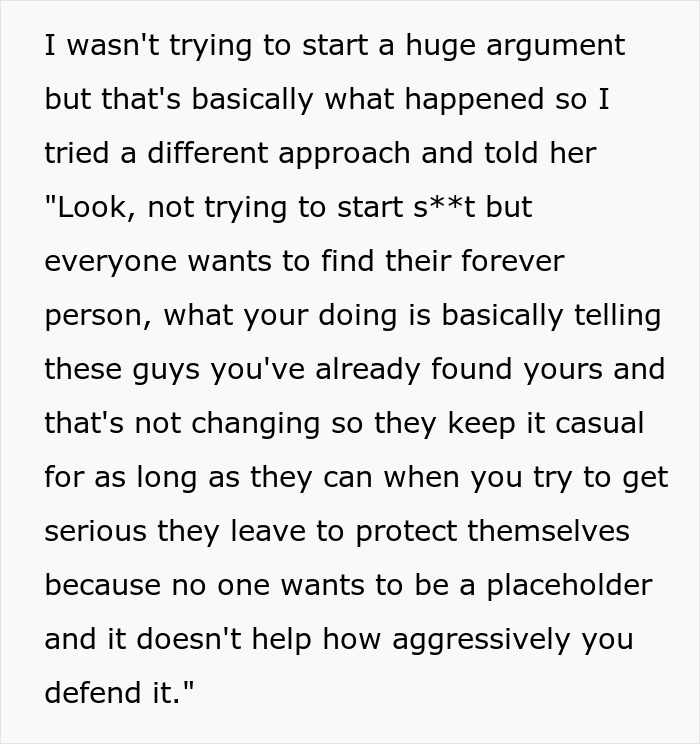


Image credits: NorthernCanadaEh
Can post-trauma tattoos help people heal?
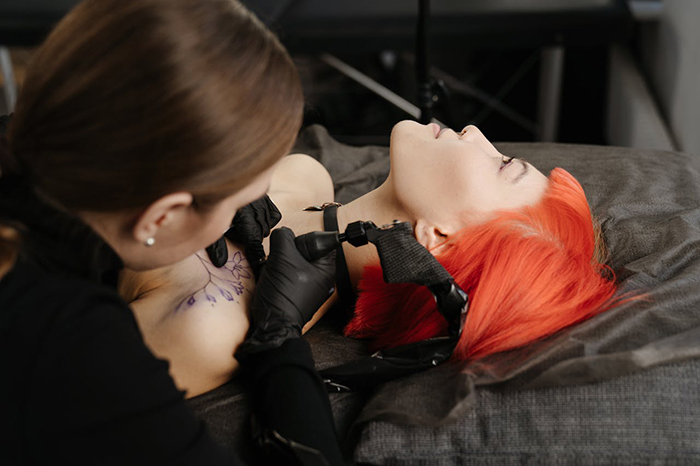
Image credits: cottonbro studio / pexels (not the actual photo)
Tattoos are common. 32% of adults in the US have at least one, including 22% who have more.
Once associated with marginalized, oppressed, victimized, or transient social groups, tattoos have become part of mainstream culture.
And while the reasons for inking your skin are as varied as the people who do it, the ‘aftermath of trauma’ tattoo has been observed as a trend.
Suzanne B. Phillips, Psy.D., ABPP, is a licensed psychologist and an adjunct professor in the Doctoral Program of Long Island University and on the faculty of the Post-Doctoral Programs of the Derner Institute of Adelphi University. She notes that:
- Across generations and wars, those in the military have used tattoos as tributes to fallen brothers in arms;
- In the aftermath of 9/11, civilians and firefighters throughout the world chose tattoos as an indelible reminder of the terrorist assault, the courage of first responders, and the loss of so many;
- Sociologists Glen Gentry and Derek Alderman estimate that there are thousands of Katrina- and New Orleans-related tattoos reflecting both horrific images of crumbling buildings and gushing floodwater, as well as signs and symbols of a beloved city;
- In the wake of the unprecedented destruction from Hurricane Sandy, there have been numerous tattoo fundraisers.
“Whether a traumatic event involves a car accident, escape from freezing floodwaters, or the loss of a child, it is registered in our body in terms of the survival reflexes of fight, flight, and freeze,” Phillips says. “Encoded under these conditions, our memory of the traumatic event is not registered as narrative but as fragments of highly charged visual images, bodily feelings, tactile sensations, or sensory reactivity to reminders of the event.”
Because of this, trauma experts encourage us to work from the body out in the course of recovery and healing to attend to the sensations, senses, and images that carry the imprint of trauma. And in that sense, tattoos make sense.
“[They] use the body to register a traumatic event, [which] is a powerful re-doing. It starts at the body’s barrier of protection, the skin, and uses it as a canvas to bear witness, express, release and unlock the viscerally felt impact of trauma,” the psychologist explains.
“Connection with self and others in a way that makes the future a possibility is crucial in healing and moving beyond trauma. When a tattoo is more than a static sign of identification with loss or pain, when it is an ongoing reminder of pain suffered and pain survived, it becomes transformative and serves as an ongoing sign of resiliency and possibility.”
However, this particular design isn’t just the late fiancé’s initials with their engagement date. Instead of remembrance, it signifies everlasting possession, and to some, that might be two different things.
The woman provided more information in the comments as her story went viral
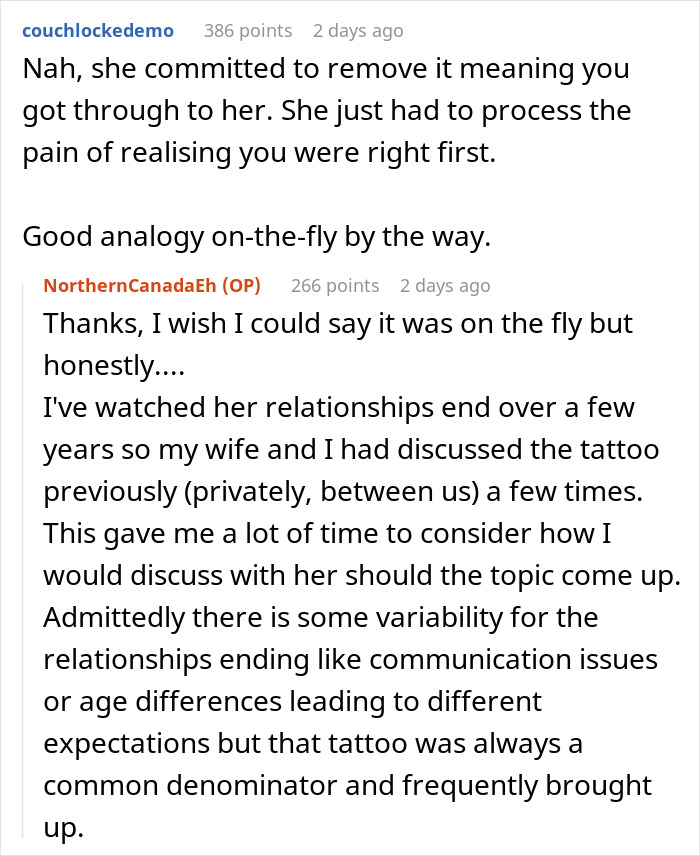


Most people believe there’s nothing wrong with the tattoo





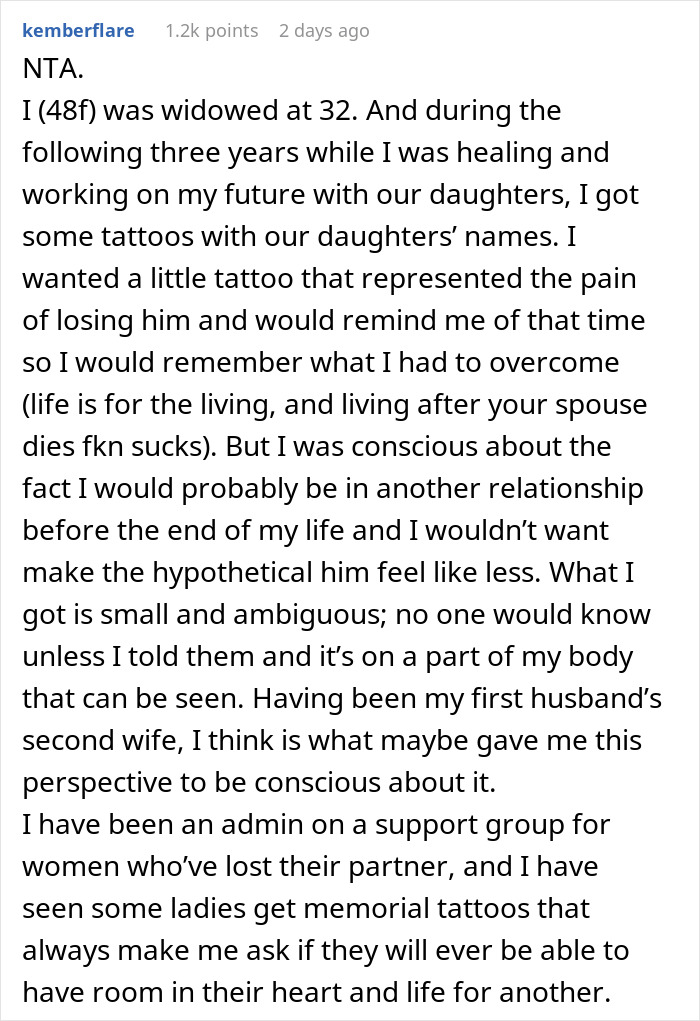

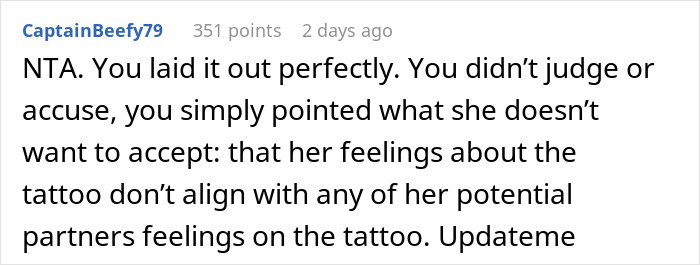






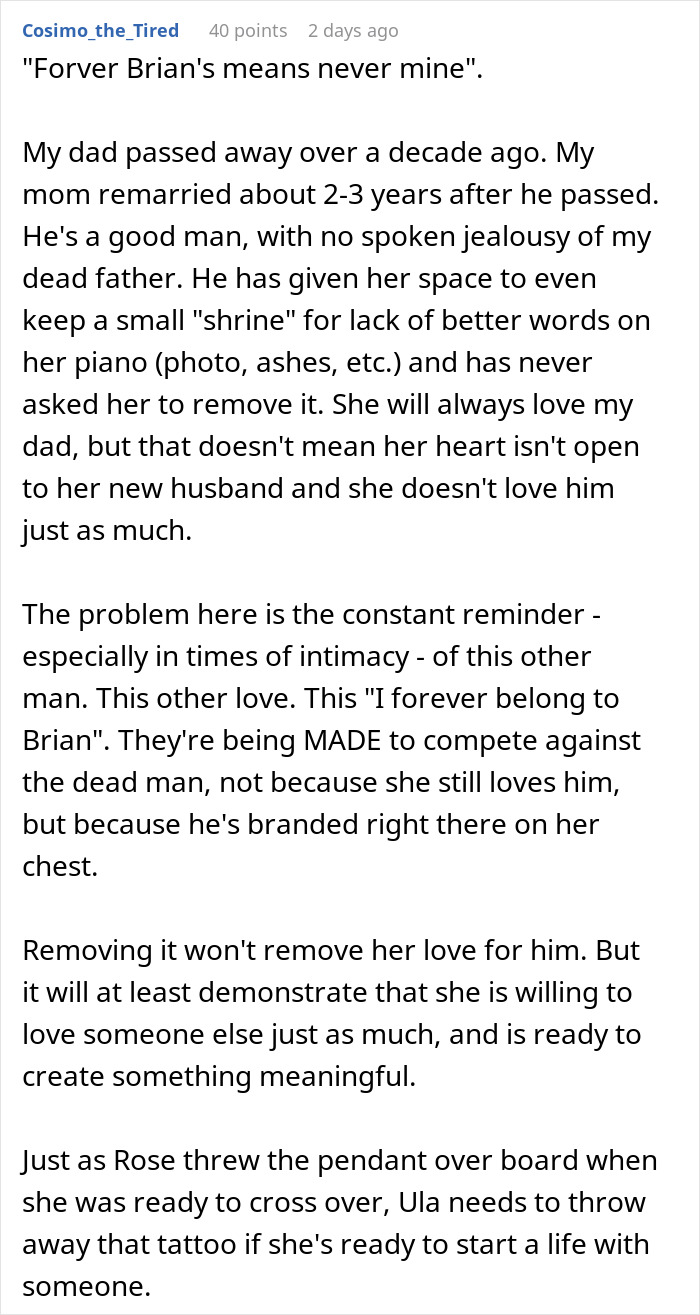






But some say she jumped the gun
